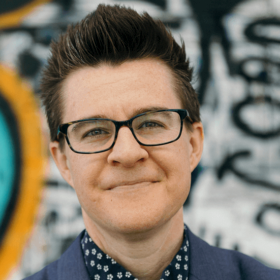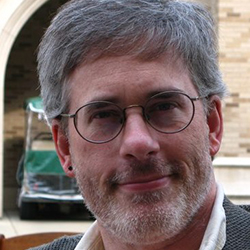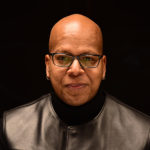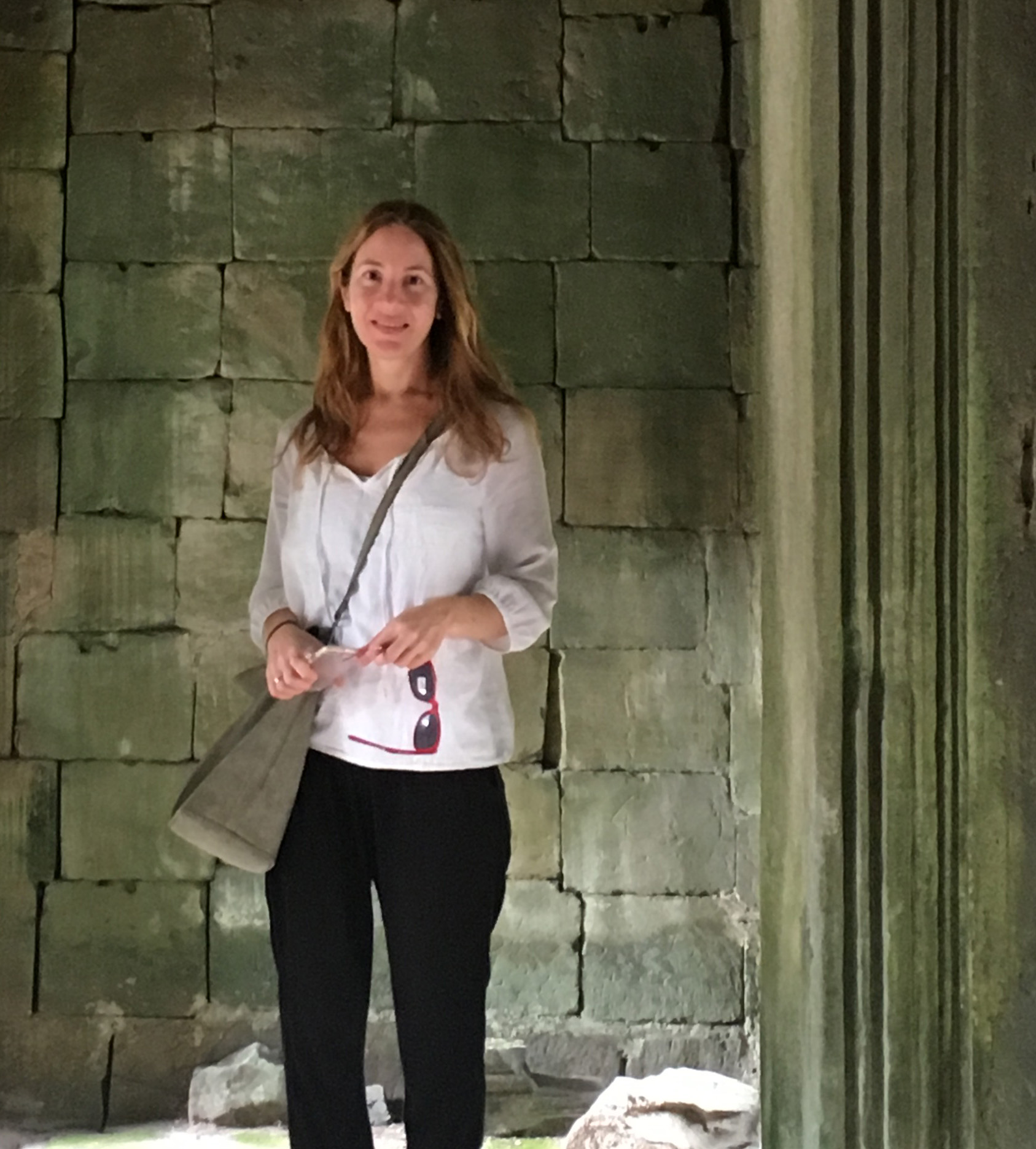Political Violence @ A Glance was an award-winning online magazine directed by Erica Chenoweth, Barbara Walter, and Joe Young. Running from 2012 – 2023, PV@Glance contributors answered questions on the causes and consequences of violence and its alternatives. Analysis came from distinguished experts doing the most rigorous, interesting, and policy-relevant research. Our goal was to offer simple, straightforward analysis. No jargon. No lingo. Just insightful content, and a bit of fun.
Political Violence @ A Glance was launched in 2012 as a collaboration between Barbara F. Walter and Erica Chenoweth. Initially housed at the School of Global Policy & Strategy at UC San Diego, in 2014 the Josef Korbel School of International Studies at the University of Denver became the editorial home of the blog. There, PV@Glance launched “Denver Dialogues” (2015-2019), a weekly series that explored the policy implications of changing trends in peace and security and which was supported by the Carnegie Corporation of New York. In 2019, PV@Glance returned to UC San Diego under the support of the UC Institute of Global Conflict & Cooperation, a University of California think tank specializing in research, training, and policy engagement around issues related to international security and peacebuilding. Over its eleven years, the editors of PV@Glance included Walter, Chenoweth, Will H. Moore, Christian Davenport, Joe Young, and Lindsay Morgan. Managing and assistant editors (Taylor Marvin, Danny Hirschel-Burns, Liz McKinney, Jill Schmieder-Hereau, Patrick Pierson, and Lilly Dunn) helped to process, edit, and publish submissions and associated artwork, assuring that the magazine produced articles of a consistent quality and style.
Political Violence @ A Glance was widely recognized as a leading source of accessible and rigorous analysis and a key outlet through which scholars of political violence could showcase their work’s significance for policy and practice. Over the course of its lifetime, Political Violence @ A Glance covered the key trends in peace and conflict, from the implications of the global war on terrorism, the role of technology in repression and resistance, the proliferation of coups around the world, to the rise of democratic backsliding and populist nationalism, the connections between pop culture, art, and war, and evolving norms around human rights. Political Violence @ A Glance was twice honored as the year’s Best Group Blog (2014, 2018) by the International Studies Association’s Online Media Caucus.
The Editors
Barbara F. Walter
Barbara Walter is Professor of Political Science and Associate Dean at the Graduate School of International Affairs and Pacific Studies at the University of California San Diego. She is an authority on international security, with an emphasis on internal wars, unconventional violence, and bargaining and conflict. She received her Ph.D. in political science from the University of Chicago, and held post docs at Harvard University and Columbia University. Walter is on the editorial board of the American Political Science Review, Journal of Politics, Journal of Conflict Resolution, International Studies Quarterly, and International Interactions. She is also the recipient of numerous grants and fellowships, including awards from the National Science Foundation, Carnegie Corporation of New York, Guggenheim, and Smith Richardson Foundations.
Erica Chenoweth
Erica Chenoweth is the co-founder of Political Violence @ a Glance. She is Professor of Public Policy at Harvard Kennedy School. Foreign Policy magazine ranked her among the Top 100 Global Thinkers of 2013. She also won the 2014 Karl Deutsch Award, given annually by the International Studies Association to the scholar under 40 who has made the most significant impact on the field of international politics or peace research. Her book (with Maria J. Stephan) Why Civil Resistance Works: The Strategic Logic of Nonviolent Conflict won the 2013 Grawemeyer Award for Ideas Improving World Order and the 2012 Woodrow Wilson Foundation Award. Chenoweth has authored or edited four books, including The Politics of Terror (Oxford, 2018) with Pauline Moore; Rethinking Violence: States and Non-State Actors in Conflict (MIT, 2010) with Adria Lawrence; Why Civil Resistance Works (Columbia University Press, 2011) with Maria J. Stephan; and Political Violence (Sage, 2013). She has published dozens of articles in scholarly journals and edited volumes. Her research has been featured in The New York Times, The Washington Post, Foreign Affairs, The Economist, The Boston Globe, Foreign Policy, The Christian Science Monitor, NPR’s Morning Edition, TEDxBoulder, and elsewhere. In addition to co-hosting Political Violence @ a Glance, she also hosts the blog Rational Insurgent and blogs occasionally at The Monkey Cage. And along with Jeremy Pressman, she co-directs the Crowd Counting Consortium, a public interest project that documents political mobilization in the U.S. during the Trump Administration. Prior to coming to HKS, Chenoweth taught at Wesleyan University and the University of Denver. She is currently a Research Associate at the Peace Research Institute Oslo, a Fellow at the One Earth Future Foundation, and a Term Member at the Council on Foreign Relations. She holds a Ph.D. and an M.A. in political science from the University of Colorado and a B.A. in political science and German from the University of Dayton.
Will Moore
Will H. Moore was a Professor of Political Science at Arizona State University. His research explored a variety of aspects of violent political conflict, including dissident–state interaction, protest, terror, human rights violations, and forced migration. He received his PhD from the University of Colorado, and was a Fellow at the Kroc Institute for International Peace Studies at Notre Dame. Moore was the 2014-15 President of the Peace Science Society (International) and the 2015-16 President of the Human Rights Section of the American Political Science Association, and had served as an Associate Editor of American Journal of Political Science and on the editorial boards of International Studies Quarterly and Political Research Quarterly. He was also the recipient of several National Science Foundation grants and a contributor to a number of data sets. He co-directed the Conflict Consortium with Christian Davenport. Will passed away April 18, 2017. Tributes to him can be read here and here at PVG, and across the web by the many friends, students, and colleagues he left behind.
Christian Davenport
Christian Davenport is The Walgreen Professor for the Study of Human Understanding, University of Michigan; Research Professor, Peace Research Institute Oslo (PRIO); and Fellow, American Academy of Arts & Sciences (AAAS). His primary research interests include political conflict (e.g., human rights violations, genocide/politicide, torture, political surveillance, civil war, racism, economic violence, and social movements), popular culture, and creative archiving. He is the author of numerous books, including: The Death and Life of State Repression with Benjamin Appel (2022, Oxford University Press); The Peace Continuum with Erik Melander and Patrick Regan (2017, Oxford University Press); How Social Movements Die (2016, Cambridge University Press); Media Bias, Perspective and State Repression: The Black Panther Party (2010, Cambridge University Press); State Repression and the Promise of Democratic Peace (2007, Cambridge University Press). Davenport is currently working on numerous books: Political Orders: Unifying the Study of Civil War, Genocide, State Repression, (counter) Protest, (counter) Terrorism and (counter) Revolution through Government-Challenger Interaction as well as The Consequences of Contention with David Armstrong, Hanne Fjelde and Havard Nygard; Ending Police Violence: A Global Analysis with Meg Burt; and, Forced Together: How Police Violence Unifies and not Divides Americans with David Armstrong. For more see www.christiandavenport.com.
Joseph Young
Joseph Young is Professor with appointments in the School of Public Affairs and School of International Service at American University in Washington, DC. He is an expert on terrorism and civil conflict. He has published numerous peer-reviewed articles across academic disciplines, including political science, economics, criminology, and international studies. Recent scholarly articles appear in the Journal of Politics, Perspectives on Politics, Journal of Peace Research, Public Choice, and International Studies Review. His editorials have appeared in the National Interest, Huffington Post, World Policy Journal, the Washington Post and other outlets. The National Science Foundation and the National Consortium for the Study of Terrorism and Responses to Terrorism (START) have funded his research.
Lindsay Morgan
Lindsay Morgan is the associate director of the UC Institute on Global Conflict and Cooperation (IGCC), and a longtime writer and policy communications specialist. Lindsay works alongside IGCC leadership, faculty, and staff to maximize the impact of the Institute’s research. Lindsay joined IGCC after fifteen years working in international development, serving in various roles with the Bill & Melinda Gates Foundation, the World Bank, Broad Branch Associates, a Washington, D.C.-based consultancy, the Center for Global Development, the University of Washington, Results for Development, VillageReach, and the William & Flora Hewlett Foundation. She has worked extensively in low- and middle-income countries, including Burundi, Indonesia, Kenya, Uganda, Liberia, Malawi, Mozambique, Namibia, South Sudan, Tanzania, and Zambia. Lindsay earned an M.A. in politics from the University of Durham, U.K., and a B.A. in history from Point Loma Nazarene University.
Past Managing Editor
Patrick Pierson
Patrick Pierson is a consultant at the Boston Consulting Group, a Big Three global management consulting firm. He was previously a doctoral researcher at Emory University, where he received his PhD. He received his MA in International Studies from the Josef Korbel School of International Studies at the University of Denver where he spent two years as a Fellow at the Sié-Chéou Kang Center for International Security & Diplomacy. He also holds a B.A. in International Affairs from the University of Georgia.
Past Editorial Assistants
Taylor Marvin
Taylor Marvin is a master’s student with interests in Latin America, international politics, US foreign policy, and economic history. He previously wrote at the UC San Diego student publication Prospect Journal of International Affairs, where his writing was cited in numerous national outlets.
Danny Hirschel-Burns
Danny Hirschel-Burns is a PhD candidate in comparative politics in his final year of the program. He is interested in violence, state-building, and ideas in politics.
Liz McKinney
Liz McKinney is the Assistant Dean of Business and Operations at the University of Denver’s Graduate School of Professional Psychology.
Jill Schmieder Hereau
Jill Schmieder Hereau is the Assistant Dean for External Engagement at the Josef Korbel School of International Studies at the University of Denver.
Lilly Dunn
Lilly Dunn is a communications and editorial assistant at the UC Institute on Global Conflict and Cooperation.






